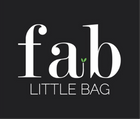
Period Poverty: What You Need to Know by Bethan Draycott
How green are your periods? Unlock 5% discount
What Is Period Poverty?
Period poverty refers to the lack of menstrual resources for people from low-income backgrounds, such as sanitary products, clean underwear, menstrual education, hygiene and waste management facilities. Period poverty is not specific to only one culture, but a global issue: around the world, 2.3 billion people lack basic sanitary services. In the US, 16.9 million women live in poverty. In Mexico in 2019, poor households spent up to 8% of their income on sanitary products, forcing them to choose between food and sanitary products. In Thailand, tampons are taxed as “luxury items' ' up to 40%. In Israel, only 55% of girls in refugee camps have the proper menstrual products. In the UK, one in ten girls is unable to afford sanitary products. These are just a few examples. This is a global crisis which is rarely talked about.
How Does Period Poverty Affect People?
Period poverty affects all aspects of people's lives. It can have negative impacts on physical health, as poor menstrual hygiene can be linked to reproductive health risks and greater risk of infection. People living with disabilities are also disproportionately affected, as they are less likely to have access to facilities. The shame attached to period poverty also has a detrimental effect on people's mental health, leading to increased cases of anxiety and depression. Many days of schooling are also missed directly impacting the education of girls. Furthermore, the lack of education surrounding menstruation can also result in increased shame and taboo which risks the spread of misinformation and medical malpractice.
Why Is Period Poverty Stigmatised?
Period poverty is often not talked about for two reasons. The first is that many people living in period poverty suffer from feelings of shame, because they don’t have access to clean clothes or products. The second is that the voices of those most affected by period poverty, low-income families, refugees, the homeless etc, are often not heard or listened to. To end the stigma, marginalised groups must be taken seriously, their basic needs met, and the taboos around periods must be broken.
YOU can help to do this simply by talking about periods, with friends, family, employers… a good opening question to friends is Are you a Flusher or a Binner of your period products?? We know all too well the challenges of both, hence why FabLittleBag was invented!
How Does Period Poverty Hold Young People Back?
The negative toll of period poverty on young minds and bodies is enormous. The surrounding shame can affect young people's education, as many teens are forced to miss school due to inadequate healthcare or menstrual products. That is why having access to the right products allows young people to feel comfortable and fully equipped when they are going through their menstrual cycle.
Period poverty also results in low self-esteem, which makes it difficult for them to flourish socially, physically and professionally. Many people suffering period poverty are already in high-stress environments, so the added lack of resources can make an already difficult situation even harder to cope with.
Period poverty is a public health issue which must not be ignored. Find out below how you can take action to help.
By your friendly fabber
Bethan Draycott
